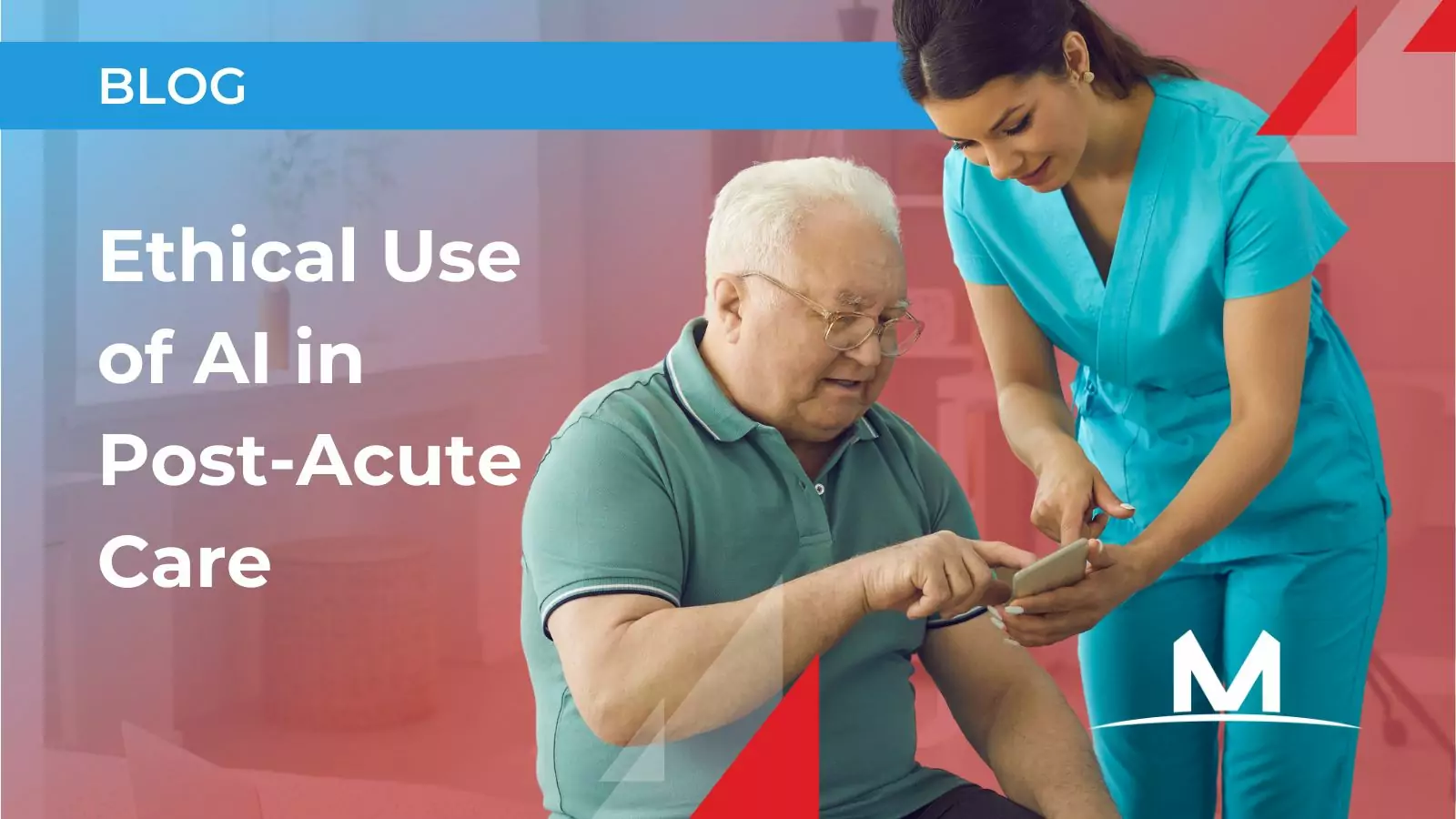Ethical Use of AI in Post-Acute Healthcare: Balancing Innovation with Responsibility

Author: Maxwell Healthcare Associates
Posted: July 9, 2024
In the dynamic landscape of post-acute care, the integration of artificial intelligence (AI) has become increasingly prevalent as agencies strive to provide more, higher quality care with less. From streamlining administrative tasks, assisting with medical diagnosis, to even predicting care outcomes, AI presents promising opportunities to revolutionize the patient and clinician experience. However, as with any technological advancement, ethical considerations are paramount to ensure that AI is utilized responsibly and properly. With this unavoidable integration of AI, countless ethical dimensions unfold within post-acute healthcare. Exploring its potential to enhance patient care while safeguarding the rights and privacy of individuals must remain at the forefront as agencies begin increasing the prominence of this tool for better care standards.
Navigating Ethical AI Use in Post-Acute Care
Post-acute care refers to the continuum of healthcare services provided to patients following a hospital stay. This phase is critical for patients' recovery, comfort, independence and rehabilitation--making it an ideal domain for the application of AI-driven solutions. These solutions encompass a wide range of possibilities, including predictive analytics for patient outcomes, personalized treatment plans, and remote patient monitoring.
Although AI presents an incredible opportunity to improve care, many ethical considerations must govern the safe and successful integration of these tools. Top among these is the responsible use of patient data and information. As AI algorithms rely on taking in vast amounts of data to function effectively, ensuring the privacy and security of this data is essential to maintain patient trust and confidentiality. Agencies must consider the degree to which data is submitted and create effective measures to ensure privacy remains consistent throughout new implementations.
Opportunities to Improve Care Outcomes
One of the most significant benefits of AI in post-acute healthcare is its ability to improve patient outcomes. AI-driven algorithms can analyze large datasets to identify patterns and trends, enabling healthcare providers to make highly informed decisions regarding patient care. For example, predictive analytics can help identify patients at risk of readmission, allowing for proactive interventions to prevent adverse events while ensuring patient comfort and well-being remains top of mind.
However, as we harness the power of AI to enhance patient care, it is crucial to uphold ethical principles. This includes transparent communication with patients regarding the use of AI in their care and obtaining informed consent for data collection and analysis. Understanding that AI is a newer tool, further education may be required to ensure patients understand the full scope of their consent. Moreover, robust data security measures must be implemented to protect patient information from unauthorized access or misuse.
The Role of AI in Improving Clinician Workload
In addition to benefiting patients, AI can also support healthcare professionals in delivering high-quality care. From automating routine tasks to providing decision support tools, AI has the potential to alleviate the burden on healthcare workers and improve overall efficiency and accuracy. For example, natural language processing algorithms can analyze clinical notes and extract relevant information, saving clinicians valuable time and resources. Tools such as nVoq provide near-instant, error-free documentation, saving countless hours and reprioritizing clinician time toward quality patient care. As AI improves compliance and accuracy, it additionally fights burnout by empowering clinicians to solely focus on passionate, care-focused responsibilities.
On the other side of the coin, as AI becomes more integrated into healthcare workflows, ethical implementation standards are essential to ensure the tools create success instead of problems. This includes ensuring that AI-driven decision support tools are accurate and reliable, with transparent algorithms that can be audited for bias or errors. Furthermore, healthcare professionals must receive adequate training and support to effectively utilize AI tools in their practice.
The MHA Difference – Technology for Post-Acute Success
The ethical use of AI in post-acute healthcare holds immense promise for improving patient care, clinician satisfaction, and overall agency success. By leveraging AI-driven solutions responsibly, healthcare providers can enhance efficiency, accuracy, and quality of care, all while improving satisfaction and retention. To fully benefit from these implementations, it is imperative to address ethical considerations such as data privacy, transparency, and accountability. Implementing new technologies is no longer just a nice-to-have investment but an essential implementation to provide quality-focused care. Proper adoption and integration are difficult, but MHA’s team of industry veterans remains dedicated to assisting your agency’s journey forward. Through our comprehensive assessments and recommendations, our team creates a strategic plan to ensure a smooth transition, buy-in, and growth moving forward. If you would like to learn more about our assessments or any of our tech-enabled solutions, contact us at [email protected] or visit www.maxwellhca.com.
